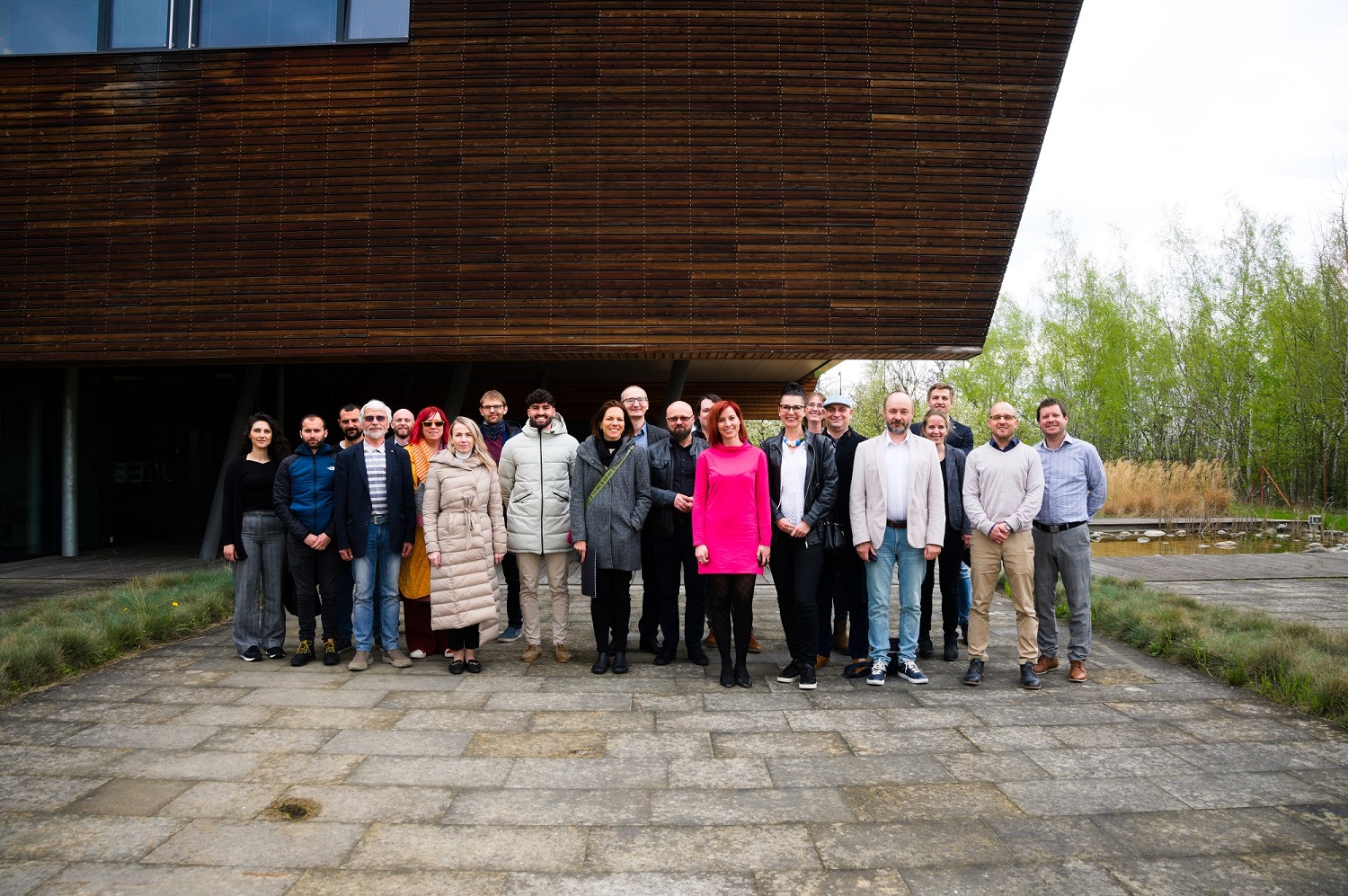
RESINDUSTRY Wraps Up with Successful Final Event
On April 26th, more than 50 people, including partners and stakeholders from different European regions, gathered at the Czech Ministry of Industry and Trade.
Until 1990s EU energy consumption was led by industry (35%), but relocation of industries, and integration of efficient technologies achieved to reduce it to 25% until 2010, when it stabilized. Energy consumption in industry is based nearly totally in fossil fuels (Odysee report November 2016), with 35% gas, 32% electricity, 30% coal and oil, which make the sector vulnerable to externalities, specially because EU imports more than 90% of oil, and 66% of gas.
EC report of February 2017 “Monitoring progress towards the EU” remarks that energy intensity industry decreased 15% at EU level from 2000 to 2010, but started to grow with speed after 2013.
Countries should reduce energy intensity to have independent and cost-effective industry. However, countries show significant differences in their tendencies, with countries with energy intensity close to 85% and growing, others with 40% and decreasing, and some with less than 10%.
EC report “Energy use in the EU industry” request harmonization and proper mechanism to boost RES in industry.
OBJECTIVES
RESINDUSTRY aims to increase the energy independency of the EU industry sector, by decreasing its energy intensity through a higher integration of RES. The long-term objective is to increase the industry competitiveness by decreasing its energy bill, rising their energy independency, thus uncoupling their energy costs from geopolitical externalities.
To achieve these long-term strategic objectives, the short-term objectives are to booster RES investment in industry by improving OPs with new policies for RES promotion.
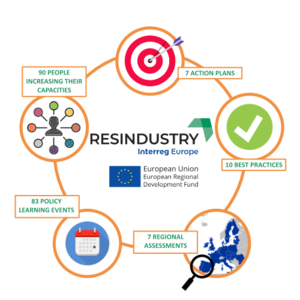
OUTPUTS
€1,623,554.00
Low-carbon economy
The PI addresses OP Priority Axis 3 “Efficient energy management, development of energy infrastructure and renewable energy sources ". Investment Priority 4b, Promoting energy efficiency and the use of renewable energy in businesses, with an allocation of € 418M€.
Supported activities include installation of a RES for the enterprise's own consumption (using biomass, solar systems, heat pumps and photovoltaic systems). The beneficiary is a business entity, a SME or large enterprise, including agricultural entrepreneurs and entrepreneurs in the food industry and retail.
Actions described in the OE 3.2 includes the integration of EE and RES technologies in companies. However, until now the major investment has been for EE in SME-buildings, with low industry representation, and low RES integration.
The EE has been largely achieved, but in order to increase energy independency of the industries, the companies require now to cover energy consumption with technologies which are independent from the market prices variation.
As decrease of energy consumption has been largely achieved, by increasing production of energy from RES will mean a direct increase of independency and competitiveness of industrial production.
OP needs to be improved by increasing the share of renewable supports and by identifying appropriate KPIs to allow MA to choose between RES technologies depending on the final macro-economic impact in the industries.
• Thematic objective 04 - Supporting the shift towards a low-carbon economy in all sectors
• Investment priority 4f - Promoting research and innovation in, and adoption of, low-carbon technologies
• Specific objective 3.2 - Developing renewable energy and energy-efficient (EE) solutions
SO 3.2 is aligned with regional strategies by supporting low-carbon solutions to reach the national RES- (38%) and EE- (310TWh) and CO2 reduction (-16%; outside emission trade) directive targets for 2020.
PäijätHäme the investments in RTD remain under 1% of GDP and requires of more RES project investment to foster the RTD.
Finland, and PäijätHäme included, can offer contradictive data in reference to RES and industry penetration, being the 2nd European country with larger energy intensity in industry (more than 42%) while RES is specially present in specific industries, such as paper where Finland hold the 3rd EU position with 32% of biomass coverage.
Even if the Specific objective 3.2 focuses on the promotion of REs in all sectors, the investment in industry and business is low and has to be increased taking as reference the good samples of paper industry. Public and private efforts have to be doubled in order to decrease energy intensity and reach the national RES targets.
Biomass technology has to be boosted ahead, but other technologies will have to be analysed based on the EU samples coming from other regions.
Investment priorities PI.4.2. includes 1 OE related to the project:
OE.4.2.2. “Promotion of renewable energies in companies”. ERDF allocated in OP4 OE4.2.3 is 7,5 M€
OE 4.2.2 aims to increase the participation or RES in thermal uses, specially biomass and solar, in companies.
These PIs presents several axes of intervention included in the OP in relation to RESINDUSTRY:
- Promotion of biomass sector for heating of housing, and companies
- Promotion of other RES integrated in companies (solar thermal, PV, hybrid, geothermal)
Actions described in the OE 4.1.2 focus on the integration of EE and RES technologies in companies. However, until now the major investment has been for SME-building related sector, with low industry representation.
From 2014 to 2017 grants calls were launched for energy audits, and EE investment, while in 2017 DG Energy launched a call for RES application in companies, which included industry. However, the applications received were unbalanced, with some technologies not been requested.
The definition of calls has to be reviewed, analyzing the required support per technology and calculating the effectiveness of each support. This full analyse of technologies, versus required public support and achieved impact, will provide Key Performance Indicators for next calls definition.
On the other hand, this KPIs will be able to create a monitoring of the achieved impact thanks to the grants launched.
OP Thematic Objective “Strengthening research, technological development and innovation”, Priority axis 4. Specific objective 2.4.4.2. “Innovative solutions increase resource productivity of enterprises.
Priority axis 4 describes how State’s competitiveness depends even more on the resource and energy efficiency of economy in key economic sectors, such as industry. The products of Estonian economy remain resource-intensive, and their energy and carbon intensity is one of the highest in the EU. The measures taken by enterprises have been insufficient. Economic growth is still accompanied by increasing use of energy resources.
Both ‘Europe 2020’ and ‘Estonia 2020’ seeks to ensure sustainable and low-carbon economic growth, so it is necessary to decouple growth from increasing resources use. To maintain and further develop a competitive industrial base, the industrial sector should be made more energy- and resource-efficient, reducing the use of fossil energy should be promoted.
RES applied to business and industry has proven to be effective in increasing the competitiveness of enterprises, stimulating eco-innovation and contributing to economic growth in the long-term.
Introducing, and reinforcing, new RES technologies will create better market conditions for industry. The objective of enhancing competitiveness will be pursued through reduction primary energy, making the industry more long-term sustainable and independent.
Within axis 3, PI 4.b promoting energy efficiency and the use of renewable energy sources in enterprises.
Priority 4.b plan to improve EE and RES in industry. Actions undertaken under the priority are to support the sector of micro, small and medium enterprises, in order to optimize the use of resources through the use of technologies and solutions aimed at rational consumption of electricity, heat and water energy.
The most important goal of the planned investments under Priority 4b is to improve the energy efficiency of enterprises, build an environmentally friendly economy, and at the same time competitive and innovative. Nevertheless, the programme still needs improving, it has to have a right contribution to real economy growth. Wider group of local stakeholders, would have a positive impact and help to develop right strategy to optimize the funds allocated for RES in industry.
Actions under Priority 4b ROP for Świętokrzyskie focus on the integration of EE and RES technologies in companies and has been directed to the SME related sector, while industry sector, has not been broadly granted with specific focus on RES. The lack of concrete measures and direct policies in the field of energy selfconsumption in industry, makes the review necessary.
The focus of policy instrument is on using targeted innovation to enhance the attractiveness of Austrian economic, research and tourism locations. It aims to strengthen regional competitiveness through research, technological development and innovation of SMEs, maintaining high living standard of the inhabitants, quality of the environment and regional accessibility of Vorarlberg and the region. The instrument supports reduction of CO2 emissions in all areas of the economy and provides increased support for renewable energy and increasing the energy efficiency. Important contribution of the program refers to the Implementation of the Science and Research Strategy Vorarlberg 2020+, the Vorarlberg, the Energy Autonomy Goal 2050 as well as the Tourism Strategy 2020.
OP Objective 1, “Strengthening the regional Competitiveness through Research, technological development and innovation”, includes 4 Specific Objectives:
1-1 - Research and technological infrastructure
1-2 - Inter-company R&D&I-Projects, collaborative projects and transfer competencies
1-3 - Operational R&D and innovation projects and technology transfer projects.
1-4 - Innovation-oriented operating investments.
The amount of investment ERDF placed is 23M€.
Thematic areas of funding R&D&I projects includes the following priority areas:
• Energy efficiency
• Efficient production and control processes
• Renewable energy
Through this policy instrument, Government aims to transform Gozo into an eco-island by 2020. Among the initiatives it shall support are investments designated to wean the island’s dependency on fossil fuels. This shall be achieved through a combination of public leadership, where all public buildings are installed with renewable energy facilities and launching of incentives to encourage private uptake of such technologies. The strategy also encourages the undertaking of studies to assess Gozo’s potential to act as a test-bed for new renewable energy technologies.
Integration of EE Actions and RES technologies in the private sector is not strongly emphasized, leaving the onus on the public sector. Support for integrating RES in industrial production is only minimal. Currently grants calls are available for energy audits, and energy efficiency investment, while the RES in industry processes is relegated to a minor role.
EE measures to decrease energy dependency are necessary, however they need to be complemented with new grants for RES integration in industrial production. A high RES integration in the industry will really achieve a long term independency and the stability of production prices for industry.
OP needs to be improved by increasing the share of renewable supports, and by identifying proper KPIS which allow the Regional Government to select RES funding technology

On April 26th, more than 50 people, including partners and stakeholders from different European regions, gathered at the Czech Ministry of Industry and Trade.
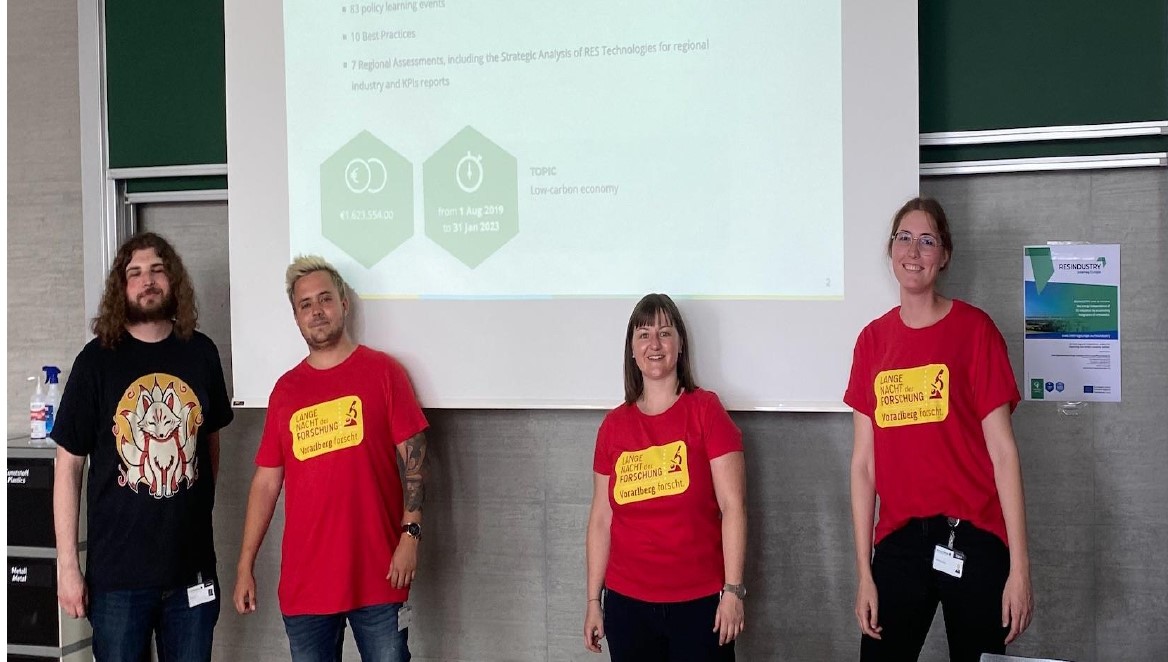
Through presentations and a tailored booth, RESINDUSTRY represented itself at the Long Night of Research and held its Austrian final dissemination event.
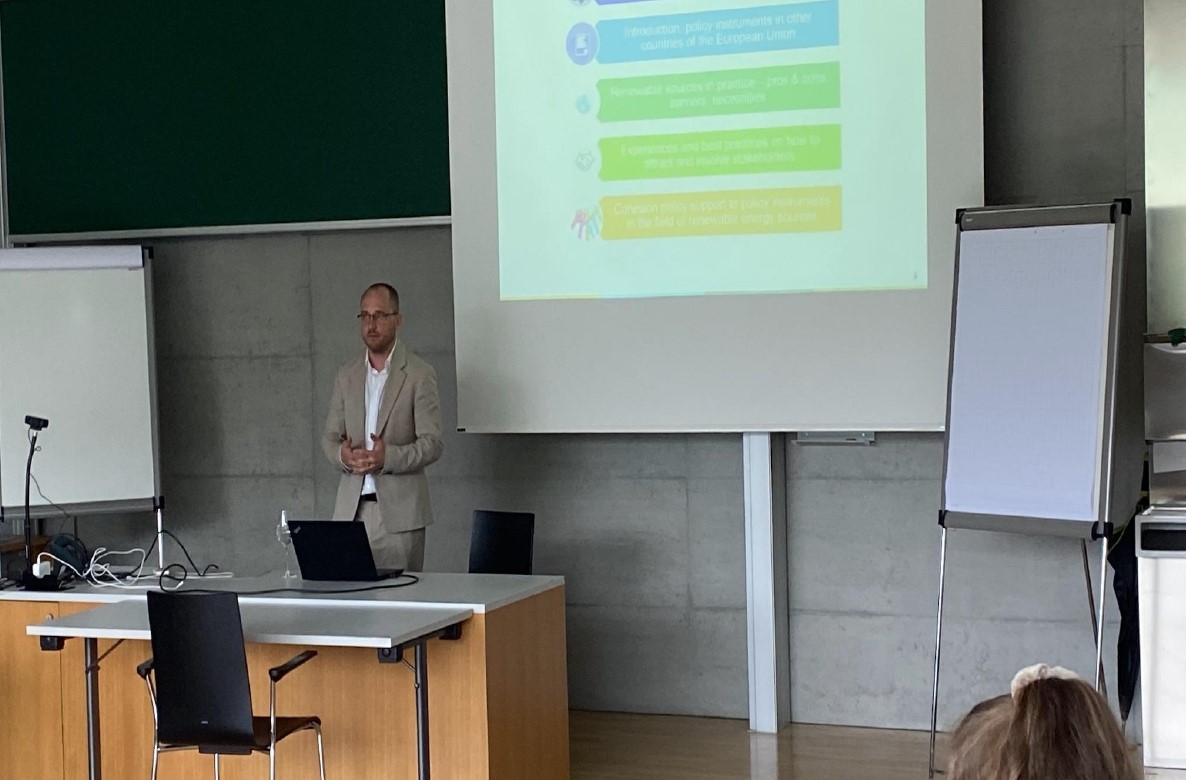
The P. Breakfast & Stakeholder Workshop ‘Erneuerbare Energiequellen in der Industry’ took place on the 16th of May at the U. of Applied Sciences Vorarlberg.
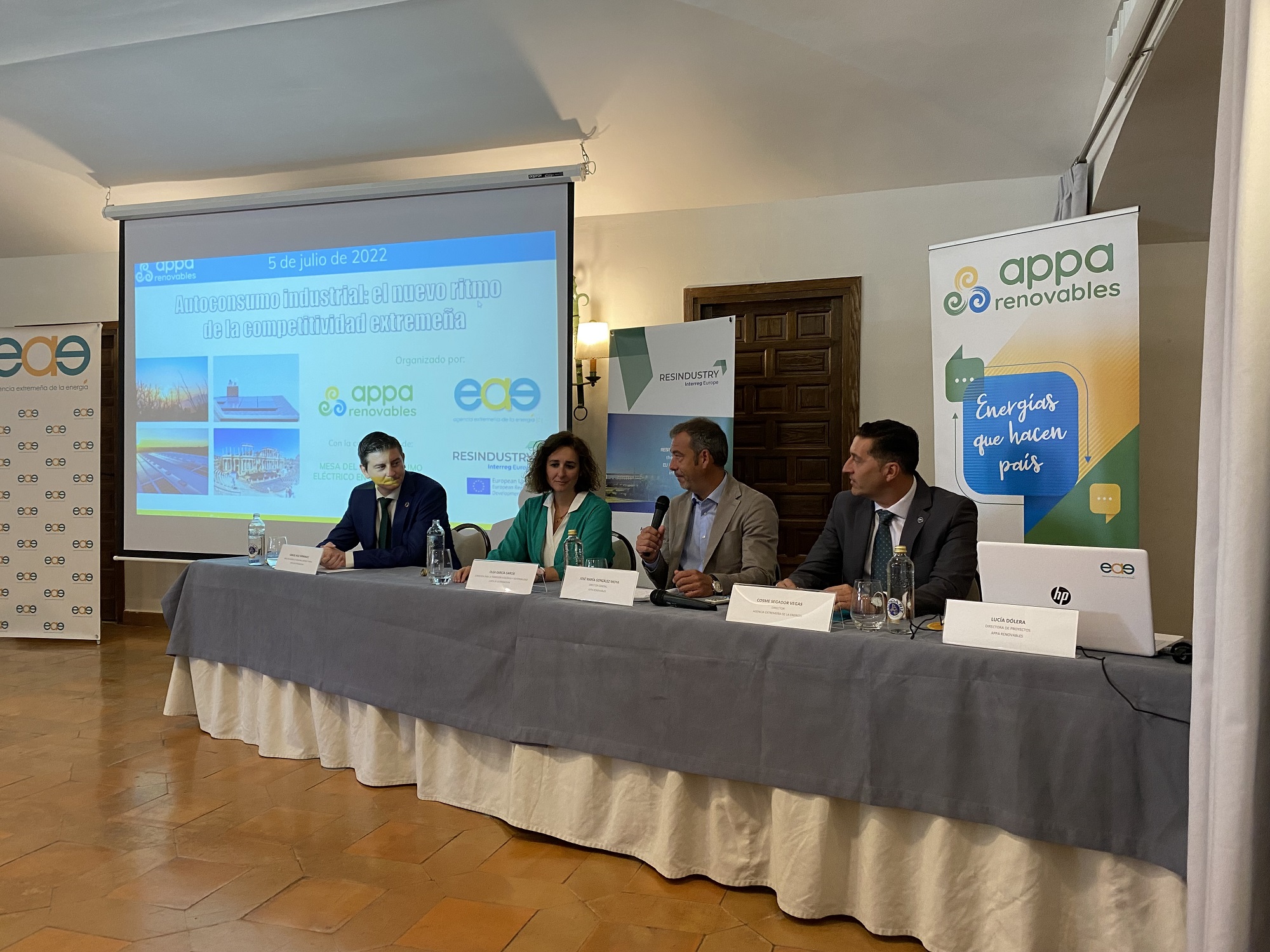
On the 5th of July, the RESINDUSTRY regional dissemination event took place in Mérida, the capital city of Extremadura.
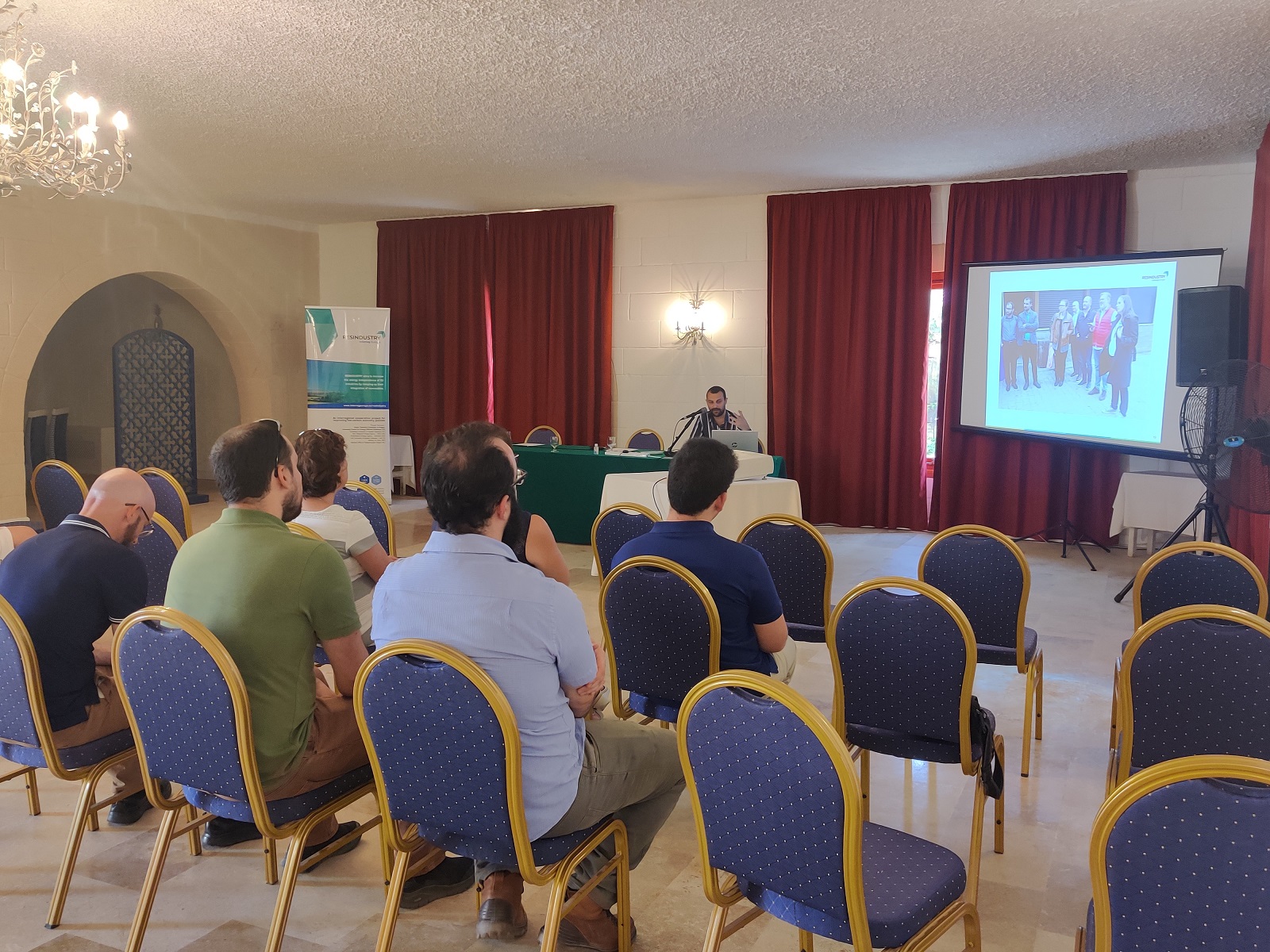
The RESINDUSTRY Final Dissemination Event for Gozo was held on Thursday 7th July.
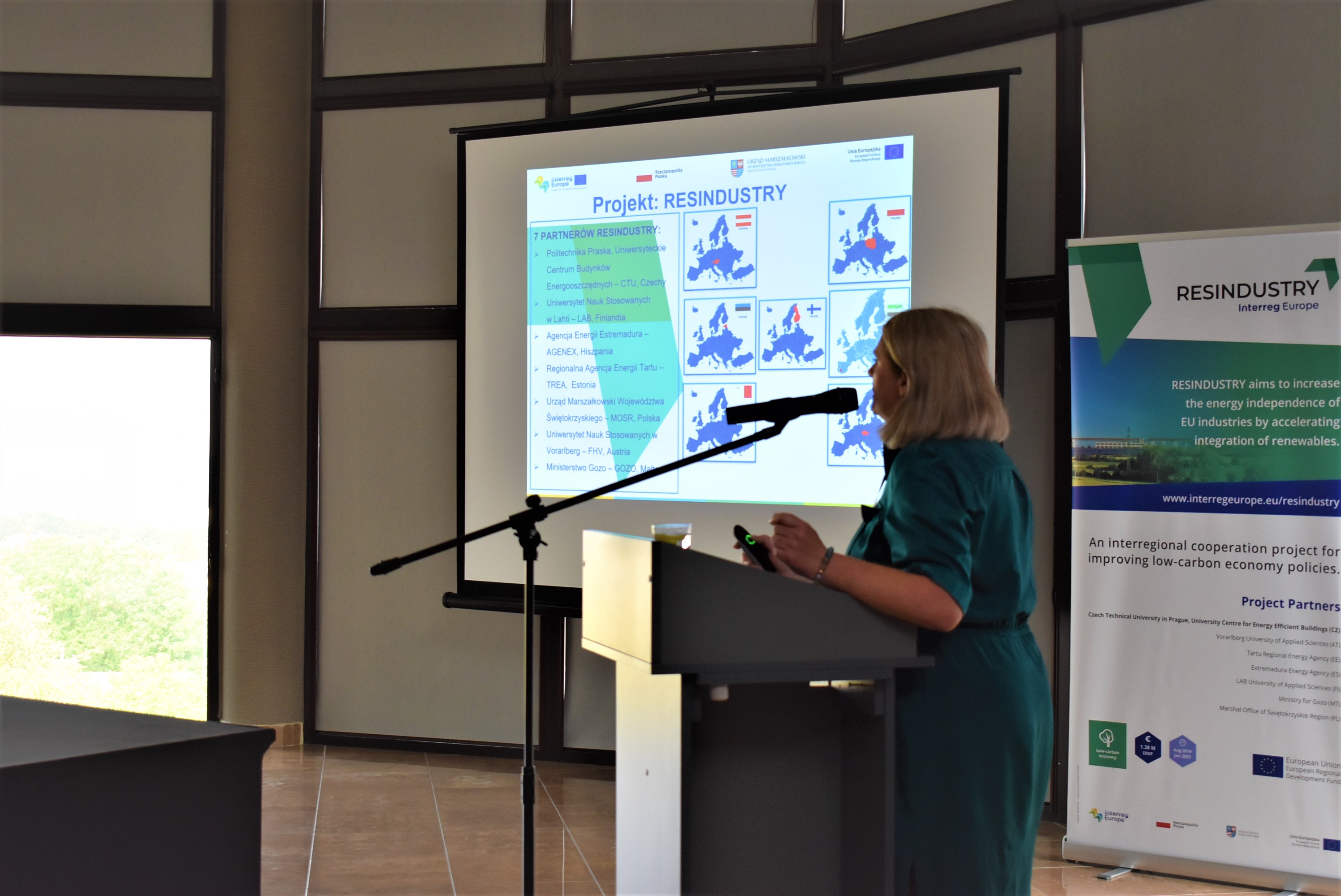
How to use renewable energy in the industry effectively to strengthen the potential of Świętokrzyskie companies and increase their energy independence?
On the 31st of May Extremadura´s expert mission took place in Finland (Lahti).
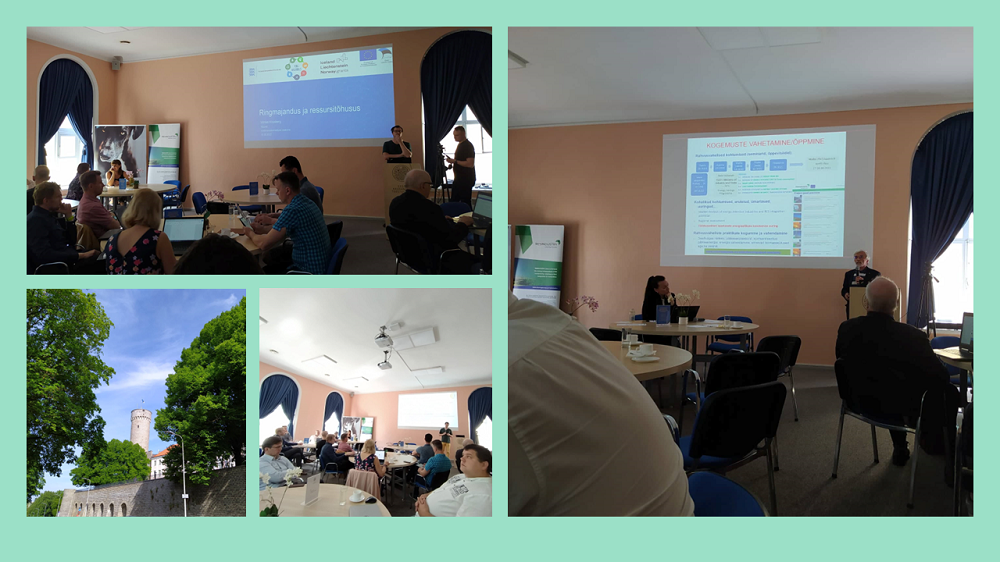
On the 10th of June dissemination event of upcoming measures took place on the premises of the Chamber of Industry and Commerce in Tallinn.
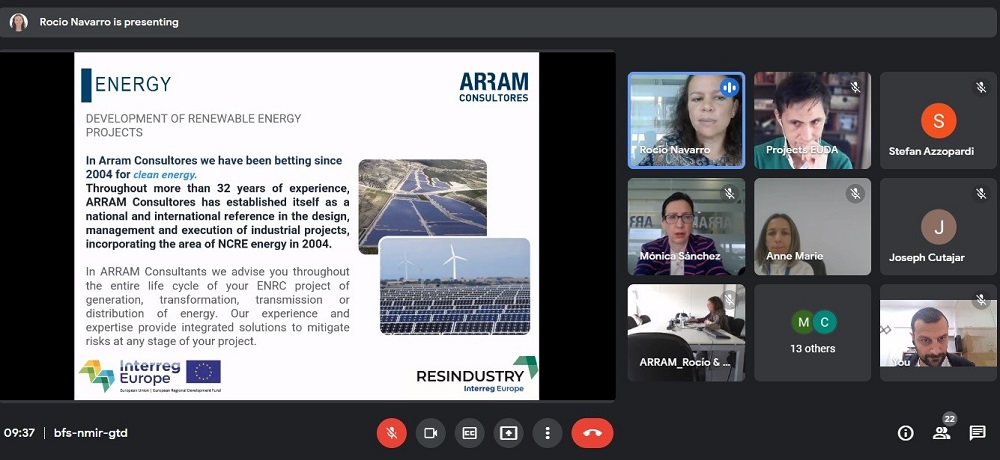
As part of the Interreg Europe RESINDUSTRY Project, an expert mission was held online on Tuesday 3rd May.

CTU UCEEB organised RESINDUSTRY Final Dissemination Event in cooperation with the Ministry of Industry and Trade CZ